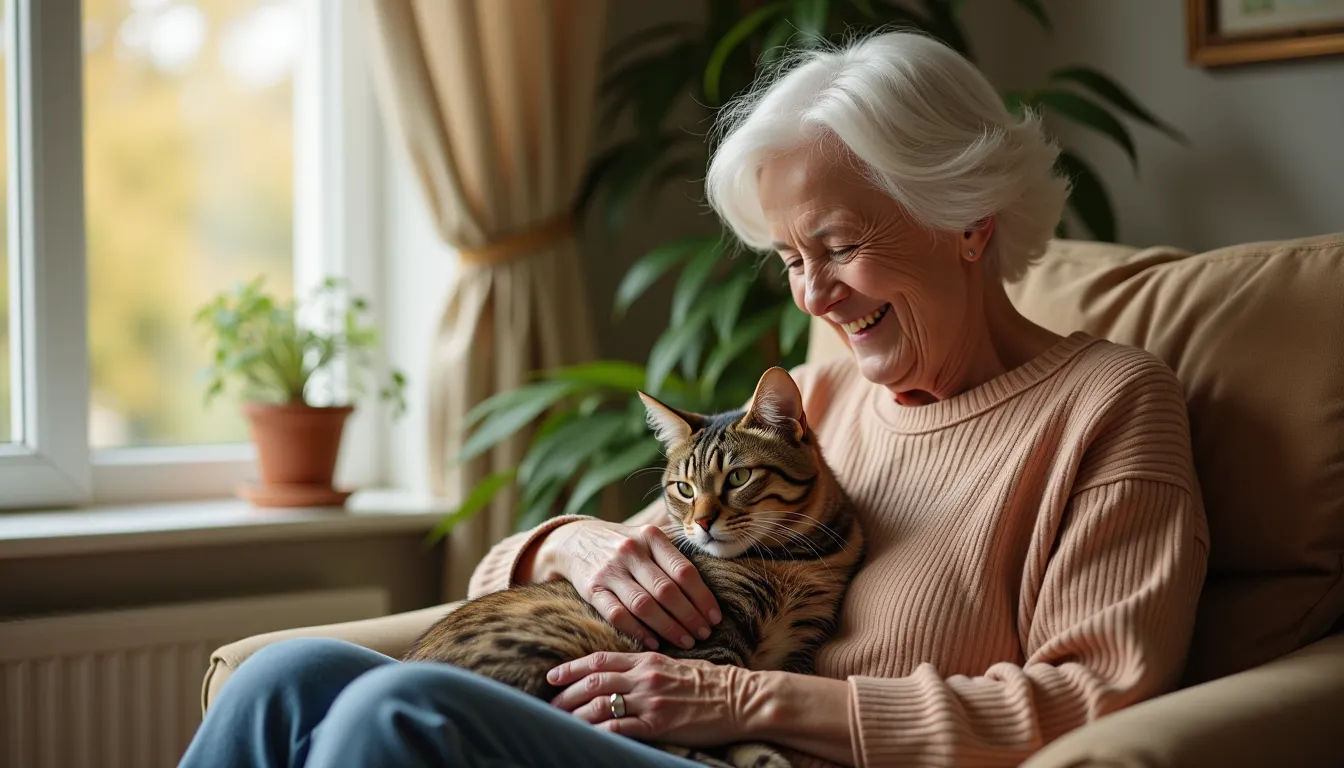As the winter chill settles in, many women over 50 find themselves longing for a furry companion to keep them warm and brighten their days. But choosing the right pet isn’t just about cuddles – it’s about finding a perfect match for your lifestyle, health, and happiness. Let’s explore how to select the ideal pet that will bring joy to your golden years.
Understanding Your Lifestyle Needs
Before diving into pet ownership, it’s crucial to assess your daily routine and energy levels. Dr. Sarah Thompson, a veterinarian specializing in senior pet care, advises, “For women over 50, it’s important to choose a pet that aligns with their activity level and living situation. A high-energy dog might not be the best fit for someone with mobility issues or limited outdoor space.”
Consider your current health and fitness level when selecting a pet. If you’re looking to increase your activity, a dog that requires daily walks could be a great motivator. On the other hand, if you prefer a more sedentary lifestyle, a cat or small mammal might be a better choice.
The Benefits of Adopting Senior Pets
Many animal shelters have “Seniors for Seniors” programs that pair older pets with mature adults. These pets often come with advantages:
- Already trained and socialized
- Calmer demeanor
- Lower energy requirements
- Immediate companionship without puppy/kitten challenges
Mary Johnson, 68, shares her experience: “I adopted a 10-year-old cat named Whiskers last year. He’s been the perfect companion – affectionate but independent. I don’t have to worry about the high energy of a kitten, and we enjoy quiet evenings together.”
Considering Maintenance and Care
When choosing a pet, think about the daily care requirements. Grooming needs, exercise demands, and feeding schedules all play a role in determining the right fit. For those with arthritis or joint pain, low-maintenance pets like cats or small dogs with minimal grooming needs might be ideal.
Financial Planning for Pet Ownership
Pet ownership comes with financial responsibilities. Create a budget that includes:
- Food and supplies
- Regular veterinary check-ups
- Potential emergency medical costs
- Grooming or pet-sitting services
Dr. Thompson emphasizes, “It’s crucial to factor in long-term healthcare costs, especially for senior pets who may require more frequent medical attention.”
The Joy of Companionship
Despite the considerations, the benefits of pet ownership for women over 50 are immense. Pets can provide emotional support, reduce stress, and even improve physical health through increased activity and socialization.
Linda Davis, 57, recounts, “After retiring, I felt a bit lost. Adopting my dog, Max, gave me a sense of purpose. Our daily walks have improved my fitness and introduced me to a community of fellow dog lovers in my neighborhood.”
Exploring Alternative Pet Options
If traditional pets don’t suit your lifestyle, consider these alternatives:
- Fish: Low-maintenance and soothing to watch
- Birds: Social and interactive without needing walks
- Rabbits or guinea pigs: Affectionate and suitable for indoor living
Making the Decision
Take your time in choosing a pet. Visit shelters, speak with adoption counselors, and spend time with potential pets before making a decision. Remember, the right pet can bring years of companionship and contribute to your overall well-being.
As you embark on this new chapter, consider how a pet can enhance your life. Whether it’s the gentle purr of a cat or the excited wag of a dog’s tail, the right pet can bring immeasurable joy and companionship to your golden years. With careful consideration and planning, you’ll find the perfect furry (or feathered, or scaly) friend to share your life with.
